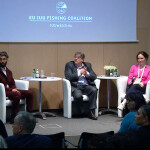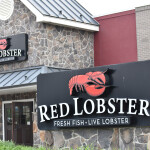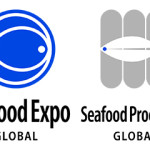The Atlantic menhaden purse seine fishery has been recommended for Marine Stewardship Council sustainability certification by independent certification body SAI Global, following the completion of a review of the fishery.
The announcement is positive news for Houston, Texas-based Omega Protein, which was pursuing the certification. By the review’s standards, the fishery scored an 82.5 for sustainability of the stock, an 86 for minimizing environmental impacts, and a 92.2 for effective fisheries management – surpassing the average score of 80 required for each category.
"We're very pleased with today's recommendation, which takes us right up to the finish line of the MSC certification process," Omega Protein President Bret Scholtes said. "As we complete this process, we will continue working collaboratively with independent certifiers and our management partners to ensure a healthy and sustainable fishery."
The certification recommendation comes after a wave of heavy opposition from environmental advocates, including The Pew Charitable Trusts, which pushed for and successfully attained cuts to the quota for menhaden in the Chesapeake Bay, one of the main fishing grounds for the species. The Atlantic States Marine Fisheries Council had reduced the quota to 51,000 metric tons (MT) from 87,216 MT.
A large portion of Omega Protein’s catch came from the area, as one of its plants is located in Reedville, Virginia. The company objected to the quota changes, and applauded Virginia’s legislature for refusing to pass a bill that would set the quota at 51,000 MT, in conformity with the council.
Virginia was then put on notice by the council after the state failed to approve the bill. However, the council later decided it wouldn’t find the state out of compliance.
A number of environmental groups – including the Chesapeake Bay Foundation, Chesapeake Bay Defenders, Menhaden Conservation Project, North Carolina Wildlife Federation, and more – indicated their opposition to the fishery gaining certification.
“There have long been concerns about the industrial-scale harvest of menhaden in the Chesapeake Bay and in the coastal waters that surround the mouth of the Bay,” Chris Moore, regional ecosystem scientist for the Chesapeake Bay Foundation, wrote in comments during SAI Global’s assessment of the fishery. “CBF believes that MSC certification of the menhaden reduction fishery along the Atlantic coast is inappropriate at this time and would set precedent that could jeopardize the value of the entire MSC process in the future.”
Despite the opposition, SAI Global found that the fishery’s scientific assessments and management are adequate and aren’t causing overfishing. Other criticisms, including that there are less menhaden in coastal waters now due to Omega Protein’s efforts, are also unfounded, given historical harvests were much higher than they are currently and stock assessments indicate the stock is healthy, the assessor found.
“The available evidence would indicate that in the past the Bay has sustained greater abundances of menhaden against the backdrop of reduction landings far in excess of current values,” SAI Global wrote in response to comments.
With the publication of the report, the registered stakeholders and peer reviewers will now have 15 working days – until 27 March – to object to the certification.
Photo courtesy of Omega Protein






